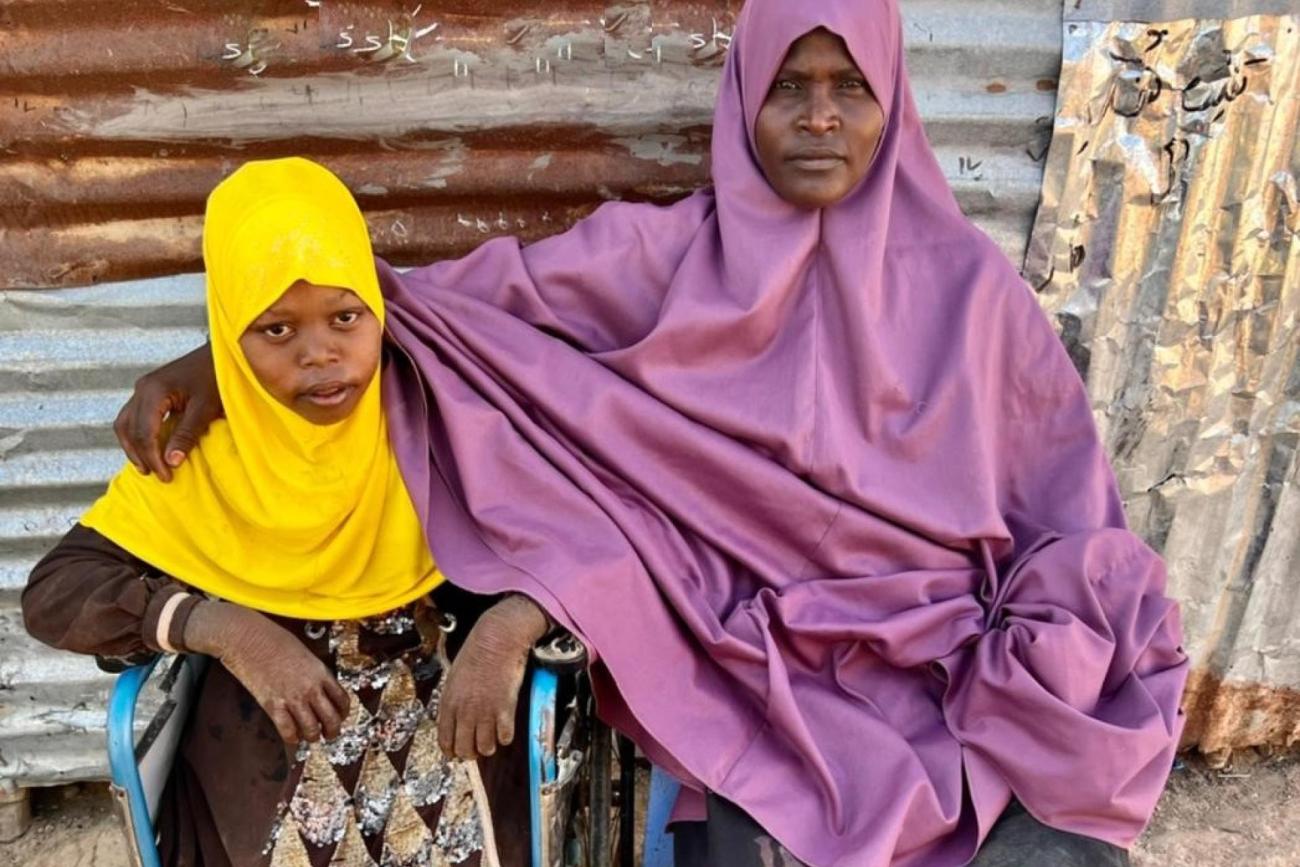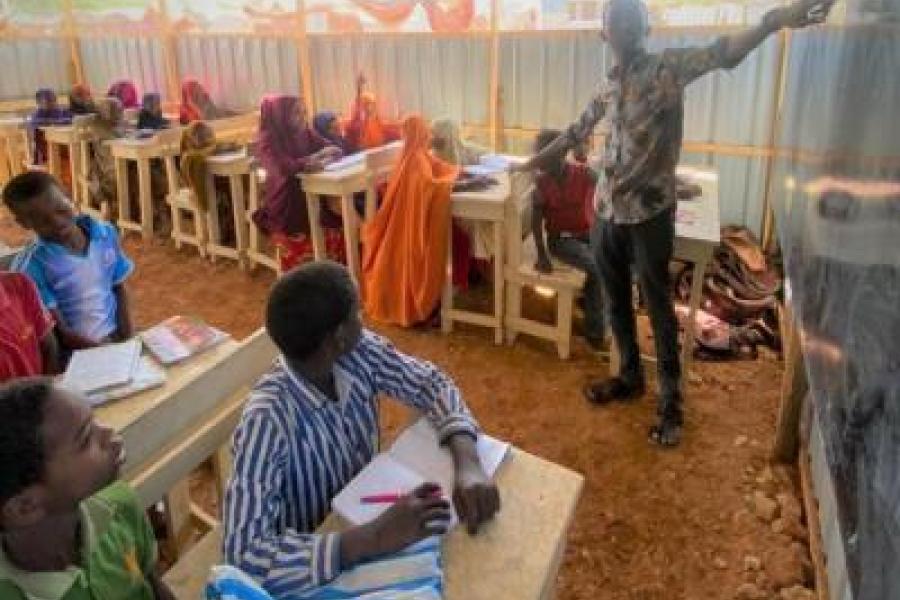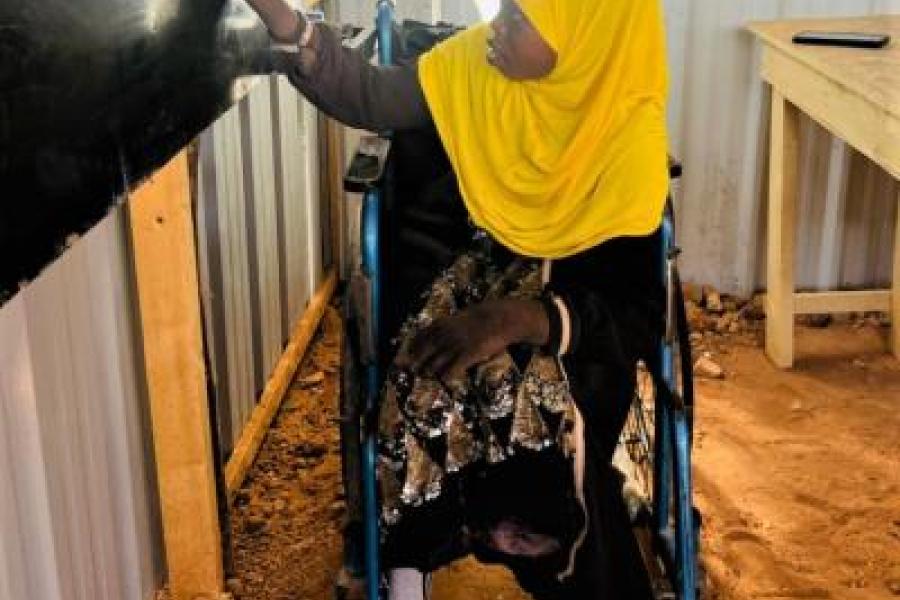Alternative basic education programme rekindles learning opportunities

Inclusive education inside the Wabi Shabelle School
In the Hiran region of Southern Somalia, conflict makes it difficult for people to access enough food. This, coupled with a severe drought, has made life extremely difficult for many families. Nasro Cali Ibrahim, a 9-year-old girl, is one such individual affected by these harsh conditions in Beletweyne. She and her family were forced to flee their village of Sigalow due to conflict. This displacement has made it difficult for Nasro to attend school.
Making matters worse, Nasro lost her father to an illness that could have been treated if medical care had been more readily available. Nasro also contracted polio when she was a baby. Her mother, Mako Mukhtar, was unable to get medical care for her daughter, and as a result, Nasro become paralyzed from the waist down. Despite her disability, she is able to express herself and use her hands. The lack of basic needs like food and medical care, coupled with the loss of her father, has made life extremely difficult for Nasro.
“She was not born with the disability,” Mako says. “This issue started when she was six months old. The girl got very sick, and we had just lost her father.” Mako could neither access nor afford quality medical care for her daughter, and so with no one to assist her or turn to, she found herself even lacking basic nutrition.

UNICEFSomalia/Hassan
Nasro in school with classmates and her teacher.
“Having been displaced from their village, they were saved and taken to the Wabi Shabelle internally displaced persons (IDP) camp in Beletweyne district,” the teacher said. “This place is safer and with a closer learning center, making it a haven for Nasro. She is very delighted because the school she attends is within the IDP camp.”
Nasro’s eyes beam with hope as the teachers says, “She is happy her future looks bright. She is bright too. Back in her village before the conflict, she could not attend school. There are no special schools for the disabled.”
UNICEF, supported by European Union’s Civil Protection and Humanitarian Aid Operations (ECHO), has assisted the Hiran Regional Education Committee (HREC) to construct user friendly toilets and classrooms for persons with special needs, fitted with ramps and handrails. HREC also provided Nasro with all learning materials and enrolled her in Level 1 of the current Alternative Basic Education (ABE) programme at the Wabi Shabelle IDP School.
“I hope to study until the university level. I will work very hard to fulfill my dream of becoming a doctor. I want to be able to help other children not to become disabled like me and also those who have become disabled due to lack of medical services or lack financial support,” Nasro says.
She continues to receive school supplies, such as books, pens, pencils, erasers and sharpeners through the education drought response program by the UNICEF. Nasro is grateful for the support of her teachers, who are well-trained and have been of great help to her. She is eager to learn how to read and write in Somali and is working hard to make her dream of becoming a doctor a reality.

UNICEFSomalia/Hassan
Nasro answering a question on the chalkboard.
Link to the original story.




